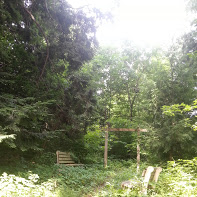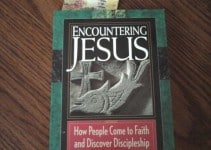Sacramentality is recognizing God in our everyday lives. This is what I do in my daily blog. I search out nature, acts of goodness, even resolution to conflicts and highlight where I see God in them. Sacramentality was definitely a way of life for the Saints. One of the greatest differences between regular people and saints is that they are able to see God in all things. Many poets, writers, and artist live a sacramental life through their work. They are able to perceive God in nature and with the talent God has given them they splash it across a canvas with paint or ink. An example of this is from “Wonderful and Dark is This Road – Discovering the Mystic Path” by Emilie Griffin, as she refers to Evelyn Underhill “They are examples of what she terms ‘the simple vision of pure love.’ To these might readily be added Elizabeth Barrett Browning’s lines,
Earth’s crammed with heaven,
And every common bush afire with God.
But only he who sees takes off his shoes-
The rest sit round it and pluck blackberries.”(42-43)
We everyday regular people should be searching for God in our own time and place. We should be embracing and pointing others to the sacramentality of this life. Especially the catechist of the Catholic Church. We are commissioned to teach the next generation of Catholics about God and the Church. One of the best ways we can possibly do this is through experiences. “Catholic sociologist Father Andrew Greeley has articulated this uniquely Catholic understanding of sacraments in his notion of the ‘sacramental imagination.” Greely finds that Catholics value experience, symbol and story, rather than creed, rite and institution” (Klein, Wolfe 29). Catholicism embraces our creation as body and soul. We are not a one dimensional creation. We have senses, thoughts, feelings, and physical sensations. Jesus Christ understood this so well that he made sure we could comprehend God through our humanness with many physical elements such as water, oil and wine as well as voice, sights, and more than anything else touch. As the Gospel reveals Jesus laid his hands on the outcasts, marginalized and the ill. He healed them of not just their physical infirmities but also brought comfort to their struggles and forgave their sins. Jesus Christ was sent to reconcile us to God. He shows us through his words and actions the sacramentality of the world around us. We need only to look at nature, people, and explore our relationships, to feel love and recognize God’s presence in our lives.



